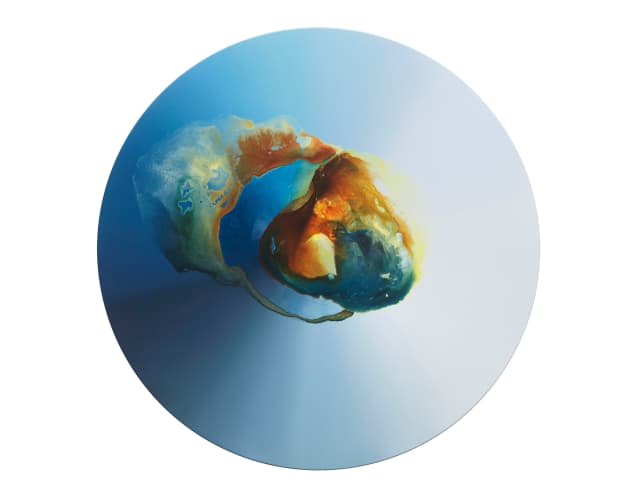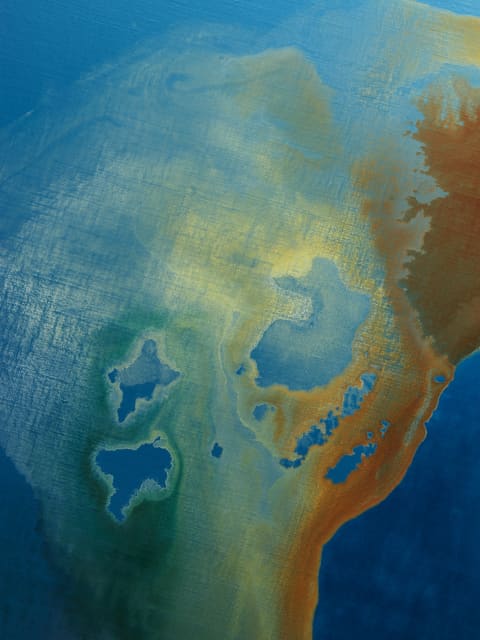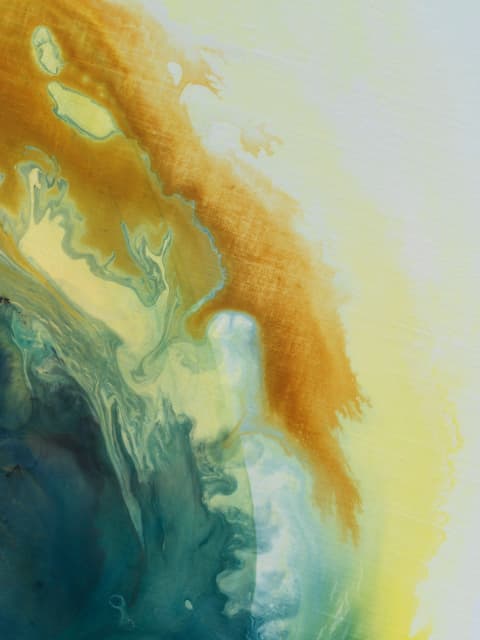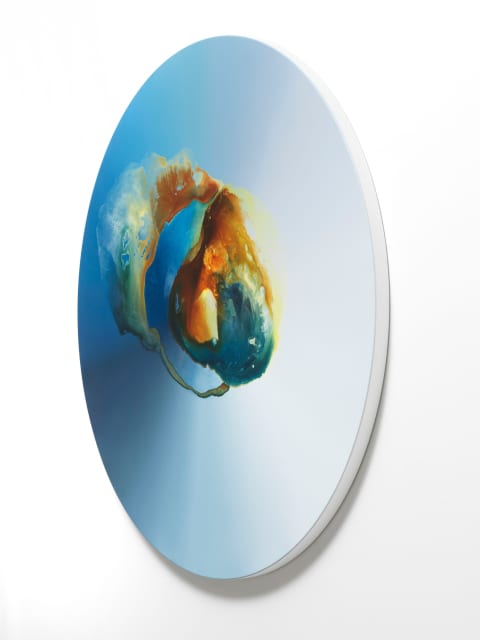In 2009, Olafur Eliasson began a series of circular paintings inspired by the idea of producing a new, comprehensive colour theory comprising all the visible colours of the prism. He began by working with a colour chemist to mix in paint an exact tone for each nanometre of light in the spectrum, which ranges in frequency from approximately 390 to 700 nanometres. Since those early experiments, Eliasson has branched out to make a large number of painted works on circular canvases, known collectively as the colour experiments. A number of these works take their palettes from other sources, such as historical paintings by J. M. W. Turner or Caspar David Friedrich, or photographs that the artist himself has taken. In this case, the cool muted tones in the background were derived from the colours found in a photograph taken by the artist in Iceland in 1996 of an iceberg. The multicoloured formless stain that spreads out from the centre of the canvas, contrasting starkly with the smooth, even background, was created by allowing a fragment of glacial ice to melt slowly in a puddle of acrylic ink.
| Artwork details | |
Title |
Colour experiment no. 116 (Lónith) |
Year |
2023 |
Materials |
Acrylic on canvas |




